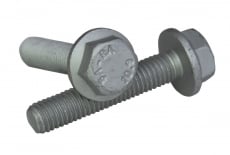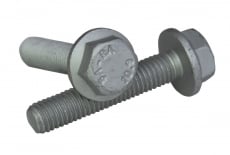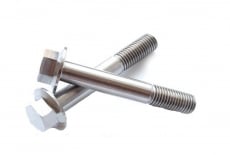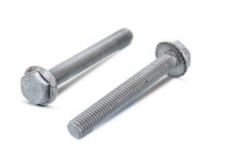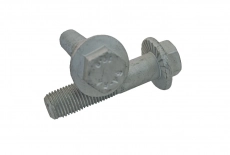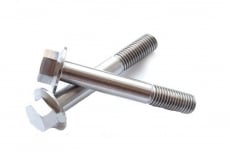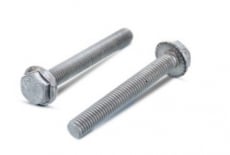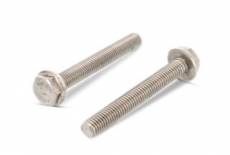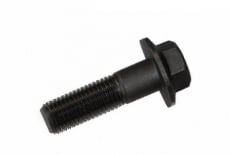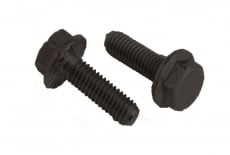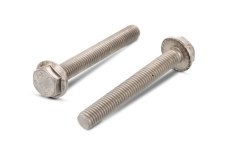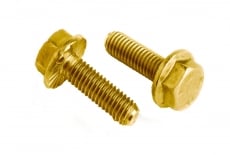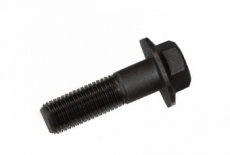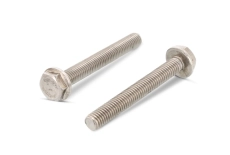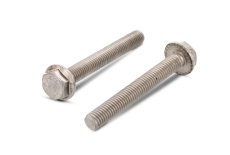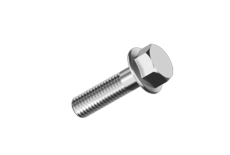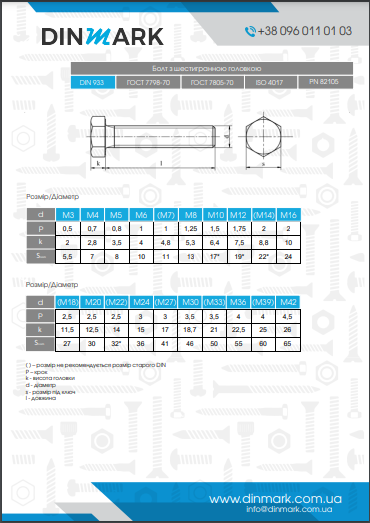
The EN 1665 bolt with flange serrations is called a self-tightening bolt because it is able to increase the adhesion force to the substrate, thereby preventing the fastener from loosening. In addition, the press washer protects the seat from damage by increasing the bearing area. The majority of the EN 1665 bolt range is classified as high-strength fasteners. This is due both to the types of materials used in the production and to their design. These bolts have a cylindrical base with a full/incomplete metric thread and a hexagonal head with a flange in the form of a press washer. The flange can be flat, as well as have a grooved lower surface of the head or locking teeth.
Strength class EN 1665
The strength class of a bolt is the maximum applied force at which the bolt begins to fracture. The EN 1665 flange bolt is only available in high-strength steel with strength classes 8.8 and 10.9.
Fastening group EN 1665
Depending on the material of manufacture, the EN 1665 bolt is divided into different fastener groups:
- High-strength fasteners - fasteners made of steel with a strength class of 8.8 or higher.
- Stainless fasteners - fasteners made of stainless steel.
Materials of manufacture EN 1665
The EN 1665 flange bolt is available in the following materials:
- Steel, which can be optionally coated with hot-dip, ordinary, yellow and plate zinc
- Stainless steel (A2, A4) does not need to be coated
Where are EN 1665 flange/toothed flange bolts used?
The EN 1665 bolt is used in wet and outdoor environments, structures in solar installations. In addition, the scope of application directly depends on the material of manufacture and the coating of the product:
- Galvanized steel is a good protection against corrosion if the fastener is to be used in an aggressive environment.
- Stainless steel allows the fasteners to be used at significant temperature changes and in aggressive and humid environments.
You can buy EN 1665 in Ukraine in our online store.


